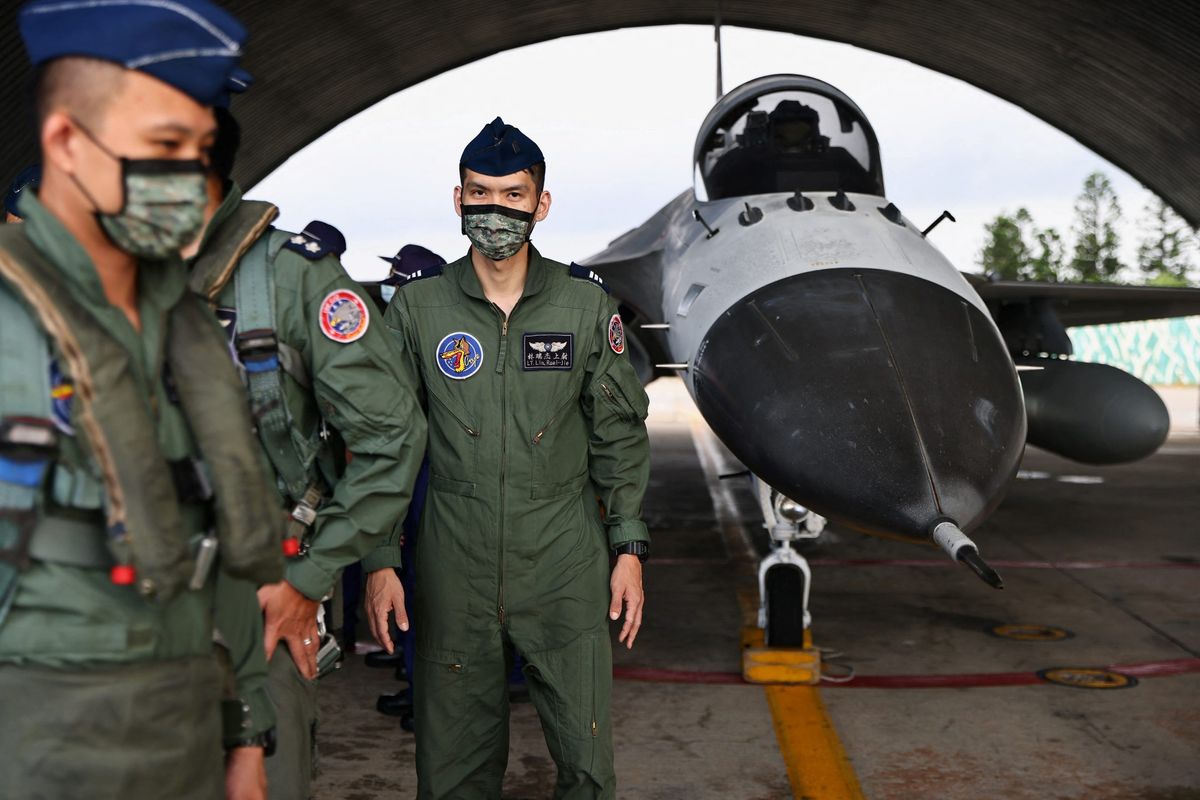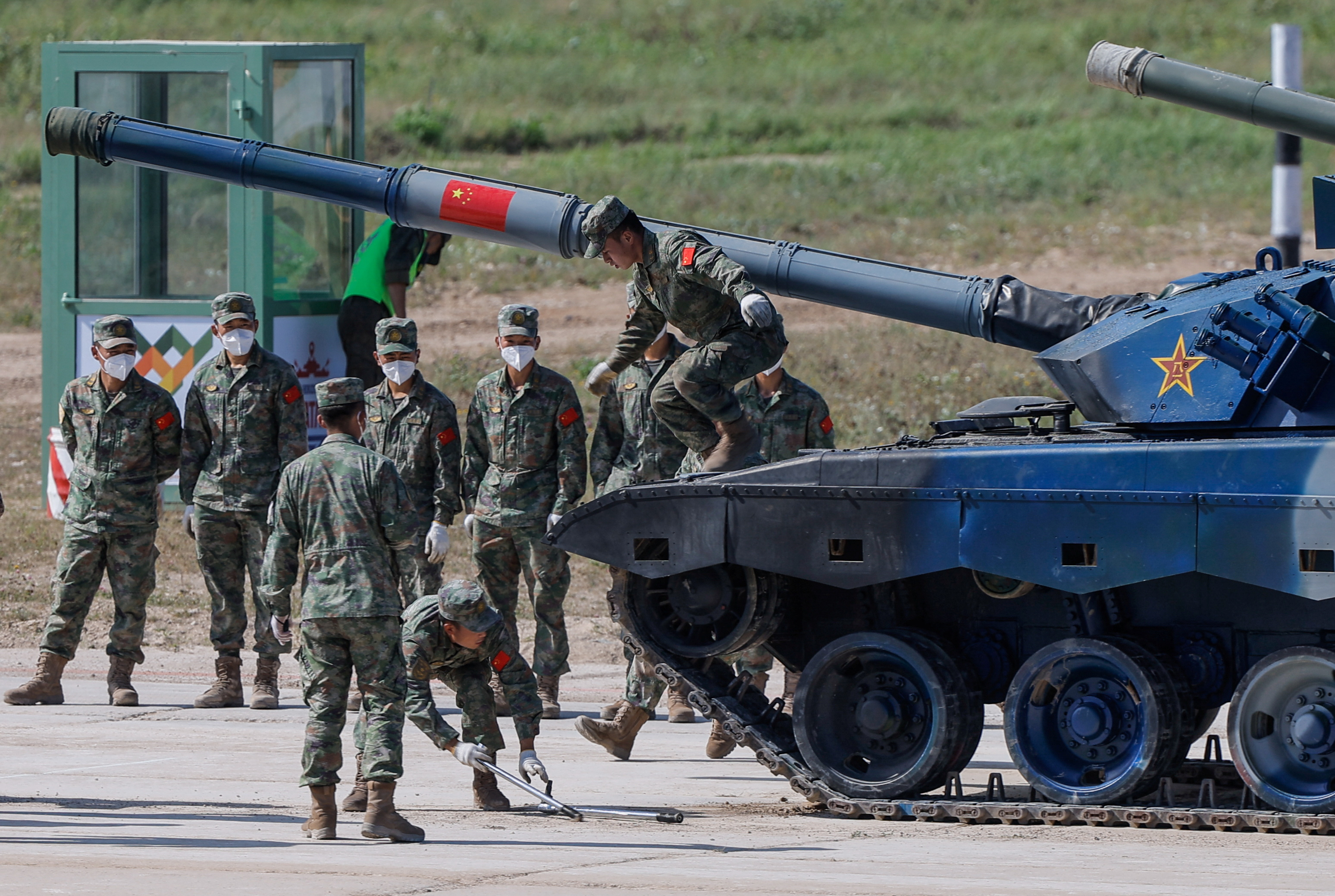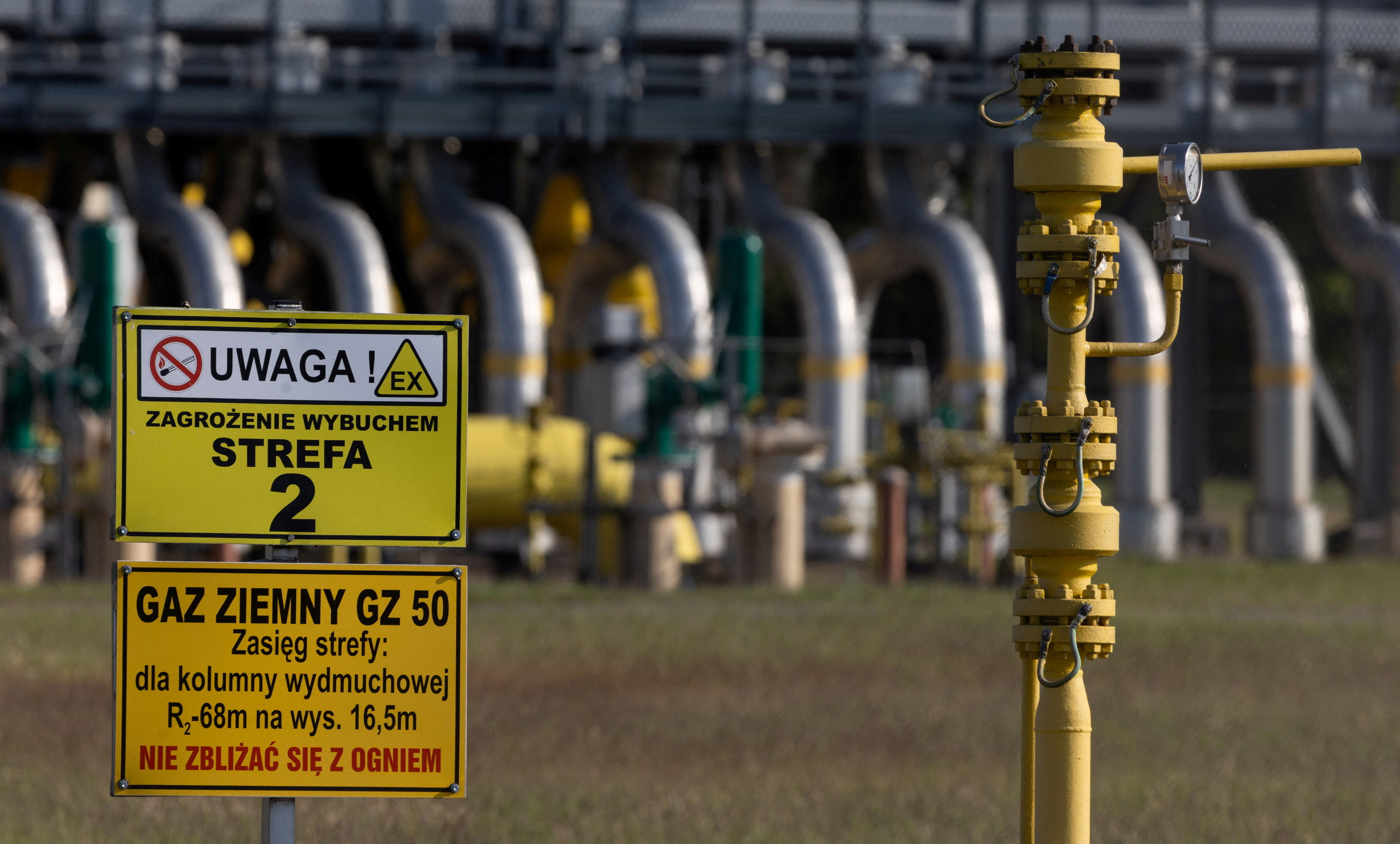From Taiwan stockpiling weapons to a giant tomato fight – Here’s your September 1 news briefing

A few minutes every morning is all you need.
Stay up to date on the world's Headlines and Human Stories. It's fun, it's factual, it's fluff-free.
To start off, we’re looking into:
Taiwan is stocking up on weapons from the US
China claims Taiwan as its own, and Chinese President Xi Jinping has talked about reunification between the two regions many times. So after Pelosi’s controversial early August visit to Taiwan, China held some military exercises and fired missiles around the region, reportedly entering the island’s territory in the Taiwan Strait. And Taiwan responded by alerting its own military and keeping a close eye on nearby Chinese activity.
Now, relations between Taiwan and China are stressing again. Taiwan is stockpiling the same types of US-made weapons that Ukraine has used in its defense against Russia. On Tuesday, China demanded that the US stop weapons sales and military contact with Taiwan in response to Biden’s latest proposed package to sell the island US$1.1 billion in missiles and radar support.
Russia kicks off “Vostok" war games

In July, Russia announced its Vostok 2022 (East 2022) military exercises, which will go on despite the country’s invasion of Ukraine. Russia said these drills are planned combat training and involve more than 50,000 troops and 5,000 weapons units, including 140 aircraft and 60 warships. The exercise will take place in eastern Russia, near Japan. The Russian Defense Ministry released a video of Chinese troops arriving in Russia ahead of the exercise, which is meant to show off the close ties between the two countries.
Today, Russia’s military drills are set to begin and run until September 7. China, Azerbaijan, Algeria, Armenia, Belarus, India, Kazakhstan, Kyrgyzstan, Laos, Nicaragua, Syria and Tajikistan will all be participating. This is the first time since 2018 that China will join the Vostok exercise, but the defense ministry said it doesn’t have anything to do with ongoing tensions in the region. Still, the US has already expressed concern over any country doing these military exercises with Russia as the war continues in Ukraine.
Russia’s temp-stop of Nord Stream 1 (again)

Since the Russian invasion of Ukraine started, Europe has been looking closely at its energy receipts. See, in the past, it bought a lot of its energy (mainly gas and oil) from Russia. But during the war, sanctions on Russian oil combined with the understanding that Russia could essentially shut the oil off at any given moment have meant that supply is shaky at best and amoral at worst.
Well, Russia seems to be going for a soft shutdown thing now. It’s shutting down the Nord Stream 1 pipeline for what it says are repairs that will last the next three days. This isn’t the first time Russia has shut down the pipeline for “repairs" (they did it in July for 10 days), and Russia has also been operating gas flow into Europe at only about 20% of its capacity.
Leaders in Europe have said that Russia is using energy as leverage in the war since the less Russia sends gas to Europe, the higher gas prices go, and the more likely the region is to deal with shortages as winter rolls in.
To end, we’ll look into:
The next phase of the Ambani legacy
If you’ve watched any TV, you know that fraternal feuds over the family business can get pretty ugly. Well, that isn’t just in Hollywood – it really does happen. One of the most famous examples in recent history was the Ambani family. See, when Dhirubhai Ambani, the founder of Reliance Industries, died in 2002 without a will, it triggered a years-long dispute between his sons, Mukesh and Anil. The result of that spat was that Reliance Industries was split up into two chunks – one that would still be called Reliance Industries (which Mukesh got a significant stake in) and another called Reliance Group (which Anil owns).
Well, now, Asia’s second-richest person, Mukesh Ambani, is looking to prevent the same thing from happening to Reliance Industries when he steps down. The company is a conglomerate with its fingers in several different industries, including renewable energy, retail sales, telecommunications and fintech. Mukesh has three kids, and so far, it hasn’t been clear how the company will be split up between them.
Back in June, it was announced that Mukesh’s oldest son, Akash, would be taking over the wireless operator Reliance Jio Infocomm, but the other siblings weren’t mentioned yet. But on Monday, Mukesh announced that his daughter, Isha, would be taking over the retail wing of the conglomerate and that his youngest son, Anant, would be joining the energy wing.
The reason this is such a big deal is that Reliance is, well, massive. It’s India’s biggest company by market value, with a valuation of over US$220 billion, and Mukesh himself is worth more than US$90 billion. But the company, like many others right now, has been dealing with some market headwinds. So it seems that Mukesh is looking to avoid any power struggles at the top.
“The succession plan addresses the market’s concern on business sustainability during leadership transition,” said Horace Chan, a senior analyst at Bloomberg Intelligence.
In other news …
📉Stocks: MSCI’s global gauge of stocks slipped 0.68% to 2,627.32.
📰Some specifics:
- S&P 500 0.78% to 3,955.00.
- Nasdaq is down 0.56% to 11,816.20.
- Dow Jones dropped 0.88% to 31,510.43.
- Hang Seng Index mostly stayed the same, up 0.027% to 19,954.39.
🧠Some quick factors to bear in mind:
- On Wall Street, Powell’s comments have continued to spark a sell-off, with investors beginning to price out previously anticipated rate cuts for next year. And yesterday, a Fed official said that she sees benchmark interest rates rising above 4% by early next year.
- China’s August data shows that the economy remains in a slump, with the new export orders index (measuring foreign demand) rising from 47.4 to 48.1 and the official PMI numbers showing a loss in momentum.
- Factory activity continues to contract with the new COVID lockdowns and heat wave energy restrictions, staying below the 50 point mark on the Purchasing Managers’ Index.
👄Some comments and chatter:
“Markets were counting on limited rate increases and quick rate cuts. [Powell’s] speech was clear, however, that the increases will be larger, and the cuts more delayed, than anyone expected," said Brad McMillan, chief investment officer for Commonwealth Financial Network.
“Our composite tracking models suggest that the chances of a recession within the next year have risen markedly. That said, the immediate risks still appear to be low, with the boost to real incomes from the continued drop in gasoline prices set to drive a solid rebound in third-quarter gross domestic product," warned analysts at Capital Economics.
🛢Oil: Recession fears are dragging down oil prices as traders prepare for possible softened demand from China and the West. US West Texas Intermediate (WTI) crude futures dropped down 2.3% to US$89.55 a barrel, and Brent crude futures fell 2.8% to US$96.49.
👛Bitcoin: At the time of writing, Bitcoin is up almost 2% at US$20,163.50.
🚷Russian visa deal suspended: The EU’s foreign ministers agreed to fully suspend a visa agreement with Russia yesterday. Basically, EU member states will be limiting the number of visas issued to Russians. This will make it harder and more expensive for Russian citizens to get into the EU.
📢Misinformation in Chile: Chile’s current constitution was created during Augusto Pinochet’s dictatorship in 1980, and it could be replaced depending on a public vote this Sunday. But false claims have been all over television, social media and by way of street canvassing to persuade voters. One totally made-up claim is that private property would be confiscated under the new constitution.
📱Snapchat’s crunch down: Snap Inc., which runs Snapchat, announced new layoffs of 1,200 people worldwide – about 20% of its global staff. Snap CEO Evan Spiegel said the company is restructuring to focus on “community growth, revenue growth and augmented reality.” Plus, Snap’s chief business officer and VP of sales are leaving the company to run Netflix’s new ad-supported tier.
📷Japan opens up tourism even more: Starting next week (September 7), Japan will welcome tourists on non-guided package tours, but individual tourists are still not permitted. The daily cap will be raised to 50,000 tourists, more than doubling the previous limit.
✊Tesla’s violation of workers’ rights: The National Labor Relations Board in the US has ruled that Tesla violated workers’ rights by banning them from wearing pro-union shirts. Tesla will now have to revise the policy, notify workers and send them the new version. This news comes as pro-union sentiment grows across the US, as it’s higher now than it’s been in 57 years, according to a Gallup poll.
🦚Zuckerberg puffs his chest: Meta’s head honcho Mark Zuckerberg went on Joe Rogan’s podcast last week to talk up his budding metaverse. Rogan’s been in trouble for spreading COVID misinformation before, which clashes with Zuck’s pro-vaccine stance and Facebook’s own info policies. But, people really noticed how he bragged about his newfound love of jujitsu – Rogan’s own fave – and talked about how watching TV is kind of “beta.” Cringe.
🍅Spain’s Tomato Battle returns: Yesterday was Spain’s famous “La Tomatina” street battle in Buñol, a street fight/festival where people throw tomatoes at one another. Trucks unloaded around 130 tons of overly ripe tomatoes in the streets for some 20,000 people to throw. The fight has been paused for over two years because of COVID, so this year’s tomato bash was a pretty big deal.
Written and put together by Jake Shropshire, Vanessa Wolosz, Christine Dulion and Krystal Lai




Comments ()